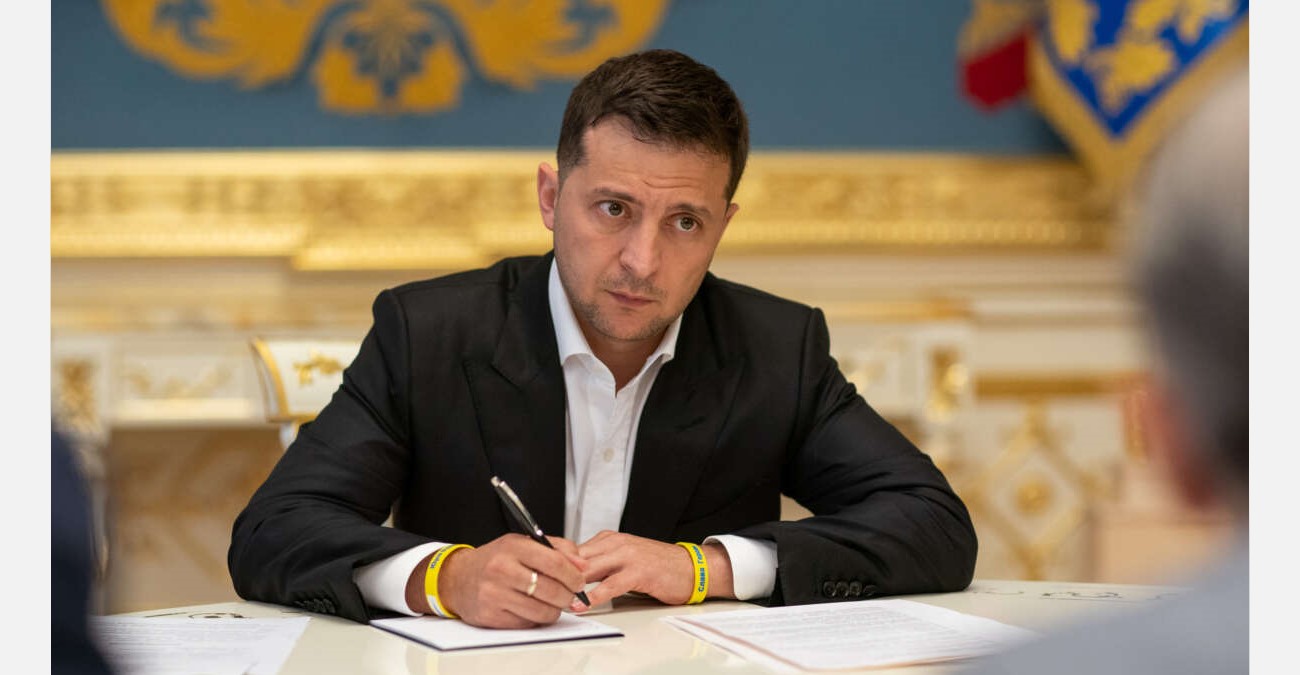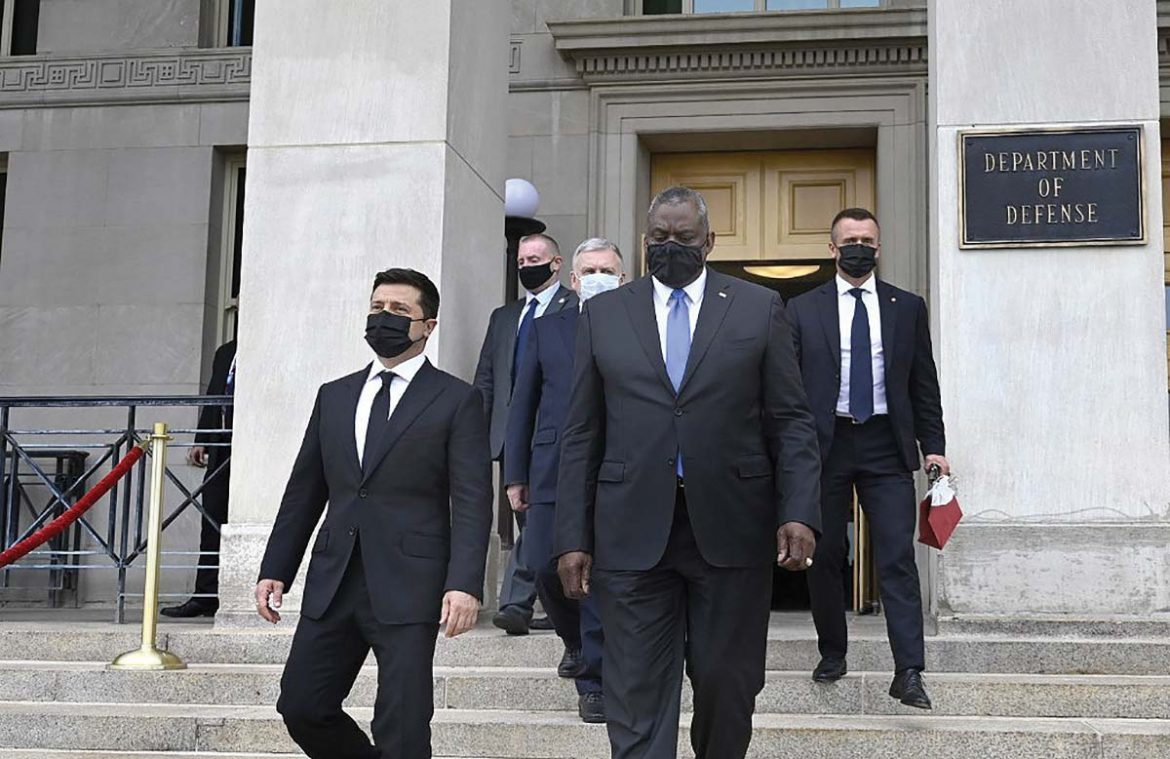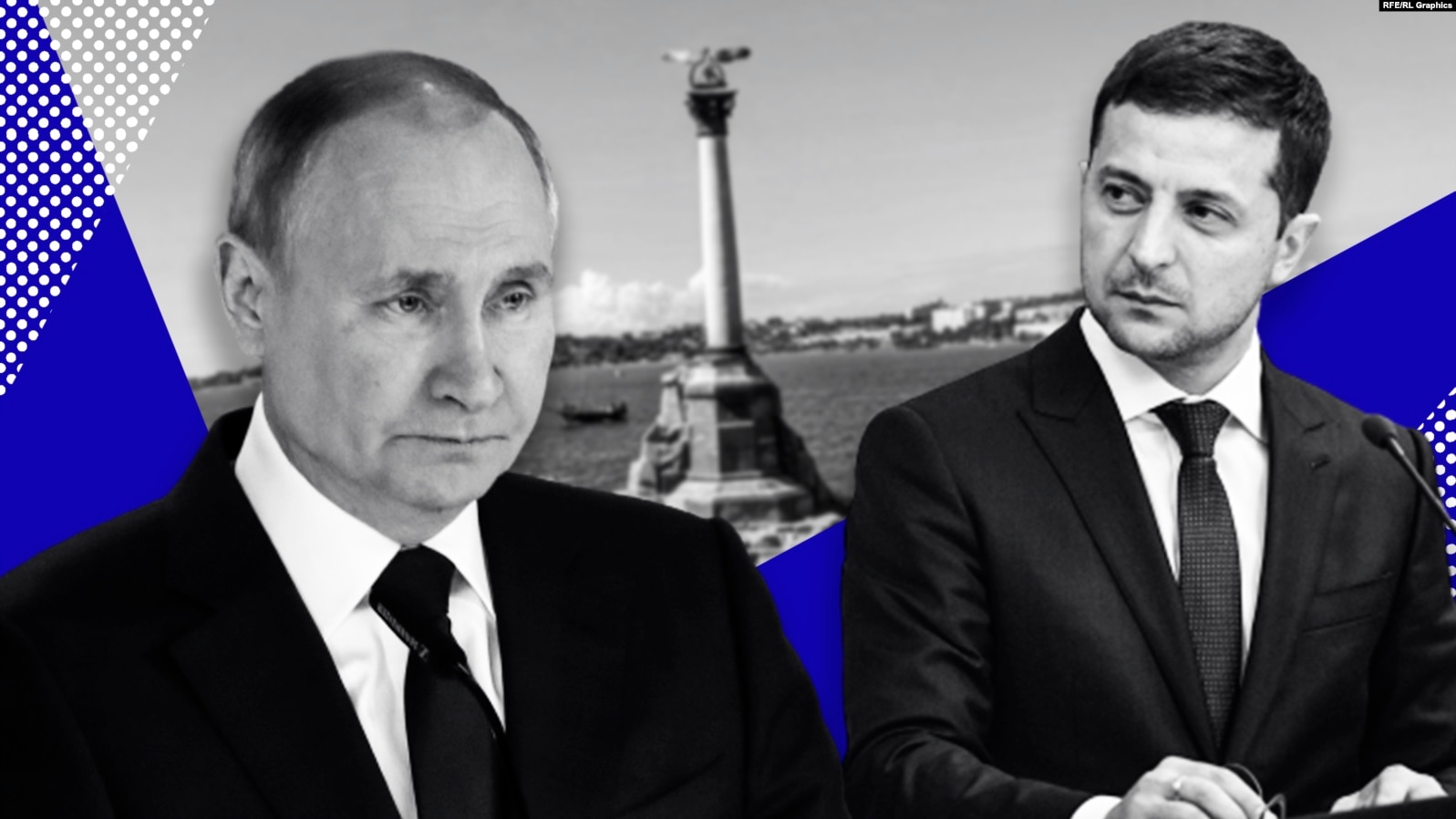US Under Secretary of State for Political Affairs Victoria Nuland sought to reassure the Ukrainian side that Washington supports the Minsk agreements as the only written document that obliges President Putin to leave Donbas (Radio Svoboda, June 17). But in a recent interview with Ukrainian television, President Zelenskyy called Minsk Two “barely alive,” particularly since Moscow has issued about 600,000 Russian passports to residents living in the occupied territories of Donbas—a violation not covered in any way by the six-year-old document. At the same time, Zelenskyy suggested that Kyiv may organize a popular referendum on whether or not Ukrainians wish to build a wall to separate themselves from occupied Donbas (Pravda.com.ua, June 24).
In fact, ahead of his expected trip to Washington, Zelenskyy has given a number of interviews, in which he criticized the Biden administration over its alleged reluctance to stand up to Moscow. After learning that Biden backed off of several key US sanctions on Nord Stream 2—a Russia-to-Germany natural gas pipeline that will be able to carry an additional 55 billion cubic meters of gas supplies to Europe entirely bypassing Ukraine—Zelenskyy said he has moved past anger and would describe his feelings as “disappointment” (Axios.com, June 6). And earlier, at a press conference devoted to his second year in office, the Ukrainian president claimed that a failure to pass further sanctions on Nord Stream 2 would represent a personal loss for Biden and a serious geopolitical victory for Russia, leading to a redistribution of power in Europe (Radiosvoboda.org, May 20).
The head of the Office of the President of Ukraine, Andriy Yermak, had reportedly expected to travel to Washington as early as May. And according to sources familiar with the matter, a number of US members of Congress received a latter on behalf of businessman Igor Pasternak offering a meeting with Yermak and Deputy Prime Minister Oleksiy Reznikov (simultaneously the minister for reintegration of the temporary occupied territories of Ukraine). As the letter apparently notes, one of the purposes of the visit was supposed to be to forge new, strategic, and predictable relations between Kyiv and the US legislative branch. Pasternak confirmed he had sent e-mails to Congressmen about the possibility of US legislators sitting down with the Ukrainian officials so that they could hold briefings on what next steps, in their opinion, Putin planned to take vis-à-vis Ukraine. No such meetings ever took place. Yermak told reporters he did not plan to visit the US capital at that time. Whereas one of the recipients of the letter explained the refusal to meet by the fact that the request had not come from the Embassy of Ukraine (Radio Svoboda, May 19).
Since his election in 2019, President Zelenskyy’s inability to organize a clear international coalition that would tangibly back Kyiv’s efforts to resolve the Donbas situation on Ukrainian terms puts the president in an arduous position politically—particularly against the backdrop of Russia’s military buildup on Ukraine’s border. This diplomatic fiasco has come under criticism from Zelenskyy’s domestic opposition in both the pro-Russian and pro-Western camps. When it comes to the latter, former president Petro Poroshenko, who heads the European Solidarity party, stated that the latest postponement of Ukraine’s Membership Action Plan (MAP), at the June 14 North Atlantic Treaty Organization (NATO) summit in Brussels, was a direct consequence of the failure of the reforms adopted by Zelenskyy’s team, especially in the fight against corruption and in improving the judiciary (5.ua, June 17). Whereas, on the other side, leaders of the Opposition Platform–For Life party insist on accepting Moscow’s interpretation of Minsk Two, and they continue to repeat the Kremlin’s narratives that accuse Zelenskyy of surrendering the country to external control from the West (Regnum, June, 17). At some point, these two rival pro-European and pro-Russian camps may seek to cooperate in a bid to further damage Zelenskyy’s ratings.
Trending Now
In the last (snap) parliamentary elections, held in July 2019, Zelenskyy’s Servant of the People party received 43.16 percent of the ballots cast. But in just two years, its popular rating has dropped by half, to 22 percent. The ruling party is now followed closely by the aforementioned European Solidarity of Poroshenko and the pro-Russian Opposition Platform–For Life, garnering 17 percent each (Liga.net, May 17). Such political dynamics inevitably encourage even greater criticism of Zelenskyy’s team by both of these opposition factions in an effort to snap up voters disappointed with the incumbent presidential administration.
Read More:
- Ukrainian Parliament puts wind in sails of judicial reform, adopting bill on launch of key body
- Why Ukraine does not (yet) “deserve” NATO membership
- The limits of compromise for Biden & Putin: Ukrainians’ views of the future of occupied Crimea and Donbas
- Biden may lose ability to play around with Nord Stream sanctions: interview with Lana Zerkal
- Four lessons learned from Russia’s Ukraine buildup





